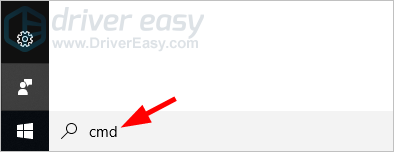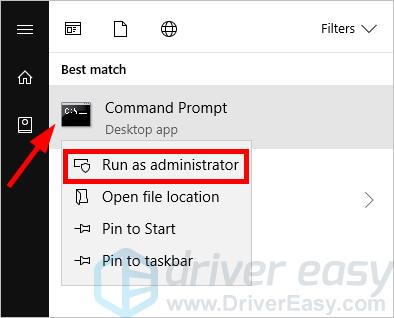
“Sfc /scannow” is a command that can help you troubleshoot a lot of issues with your Windows system. Check the easy-to-understand explanation below and learn more about this command!
Fix 1: What is “sfc /scannow”?
“Sfc /scannow” is a command of System File Checker, a utility built in the Windows operating systems. System File Checker scans critical system files and verify their versions. If this utility finds any files that has the wrong versions, it replaces them with the correct, verified ones.
Fix 2: What does “sfc /scannow” do?
This command enables the System File Checker utility to immediately scan all the protected system files on your computer. It verifies the file versions and repairs the corrupted files (replace them with the ones from a repair source). This is helpful for you to troubleshoot issues with your Windows system due to system file corruption.
Fix 3: How to run “sfc /scannow”?
To run this command:
- Press the Windows logo key on your keyboard and type “cmd“.

- Right click Command Prompt in the list of results, then select Run as administrator.

- (If you’re using Windows 7 or an earlier version, skip this step.) Type the following line of command at Command Prompt and press Enter on your keyboard:
dism.exe /online /cleanup-image /restorehealth
Note that this command provides your system with the repair source required by System File Checker. This is done through Windows Update.
* If you’re having problems with Windows Update, you should, instead of entering the command above, plug a Windows installation media into your computer (you may need to create one with the Windows system software), then type the following command:
dism.exe /online /cleanup-image /restorehealth /source:[DRIVE]:\sources\sxs /limitaccess
Replace [DRIVE] with the drive letter of your Windows installation media. - Wait for the process to be complete.
- Type the following line of command at Command Prompt and press Enter on your keyboard:
sfc /scannow

- Wait for the process to be complete.
- Restart your computer if this is not done automatically.
This should help you repair the files protected by the System File Checker utility.
Hopefully you now have a clear understanding of the “sfc /scannow” command. If you have any questions or suggestions, you’re more than welcome to leave us a comment below.





